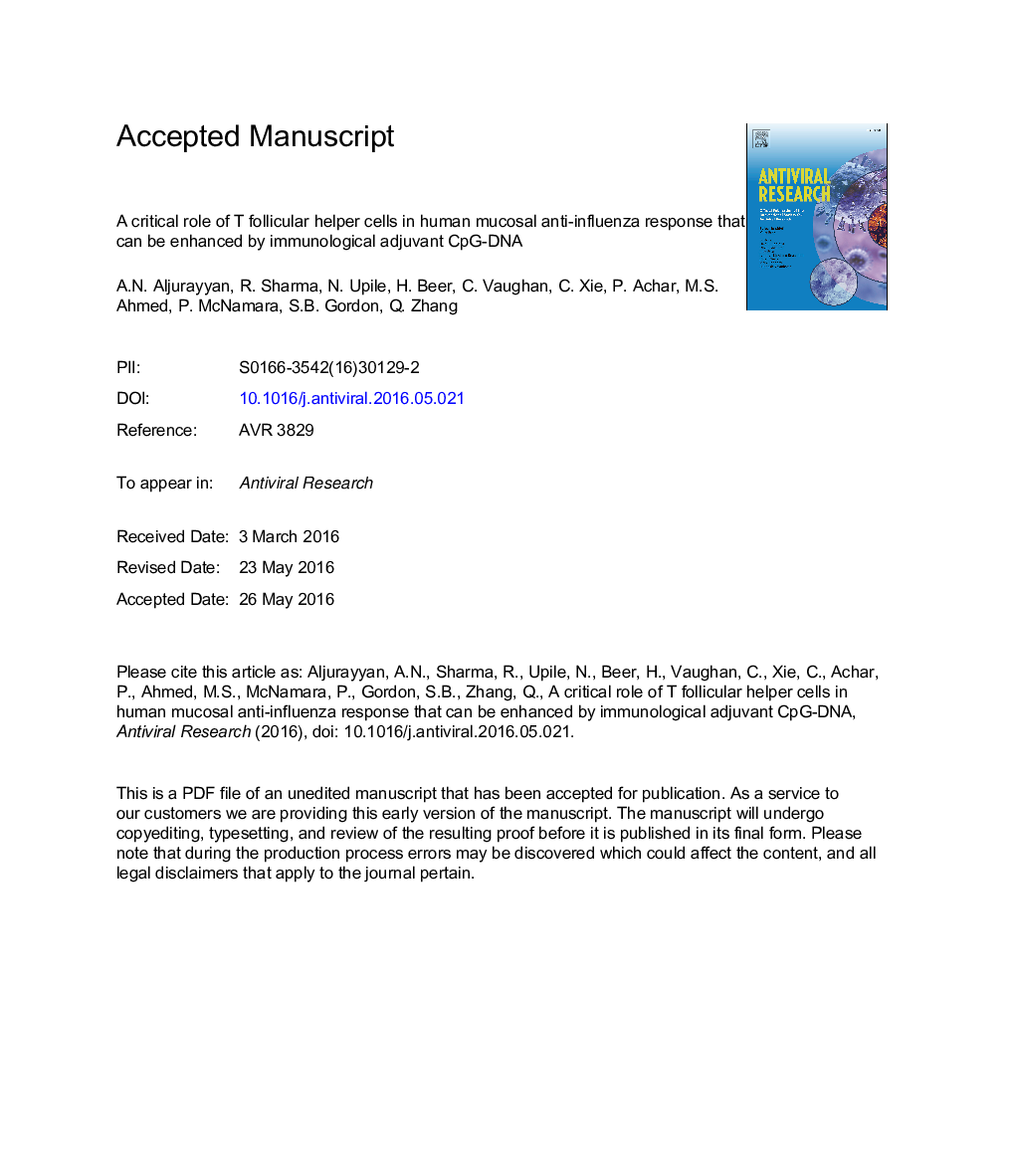| Article ID | Journal | Published Year | Pages | File Type |
|---|---|---|---|---|
| 5821613 | Antiviral Research | 2016 | 28 Pages |
Abstract
T Follicular helper cells (TFH) are considered critical for B cell antibody response, and recent efforts have focused on promoting TFH in order to enhance vaccine efficacy. We studied the frequency and function of TFH in nasopharynx-associated lymphoid tissues (NALT) from children and adults, and its role in anti-influenza antibody response following stimulation by a live-attenuated influenza vaccine (LAIV) or an inactivated seasonal virus antigen (sH1N1). We further studied whether CpG-DNA promotes TFH and by which enhances anti-influenza response. We showed NALT from children aged 1.5-10 years contained abundant TFH, suggesting efficient priming of TFH during early childhood. Stimulation by LAIV induced a marked increase in TFH that correlated with a strong production of anti-hemagglutinin (HA) IgA/IgG/IgM antibodies in tonsillar cells. Stimulation by the inactivated sH1N1 antigen induced a small increase in TFH which was markedly enhanced by CpG-DNA, accompanied by enhanced anti-HA antibody responses. In B cell co-culture experiment, anti-HA responses were only seen in the presence of TFH, and addition of plasmacytoid dendritic cell to TFH-B cell co-culture enhanced the TFH-mediated antibody production following CpG-DNA and sH1N1 antigen stimulation. Induction of TFH differentiation from naïve T cells was also shown following the stimulation. Our results support a critical role of TFH in human mucosal anti-influenza antibody response. Use of an adjuvant such as CpG-DNA that has the capacity to promote TFH by which to enhance antigen-induced antibody responses in NALT tissue may have important implications for future vaccination strategies against respiratory pathogens.
Related Topics
Life Sciences
Immunology and Microbiology
Virology
Authors
A.N. Aljurayyan, R. Sharma, N. Upile, H. Beer, C. Vaughan, C. Xie, P. Achar, M.S. Ahmed, P.S. McNamara, S.B. Gordon, Q. Zhang,
